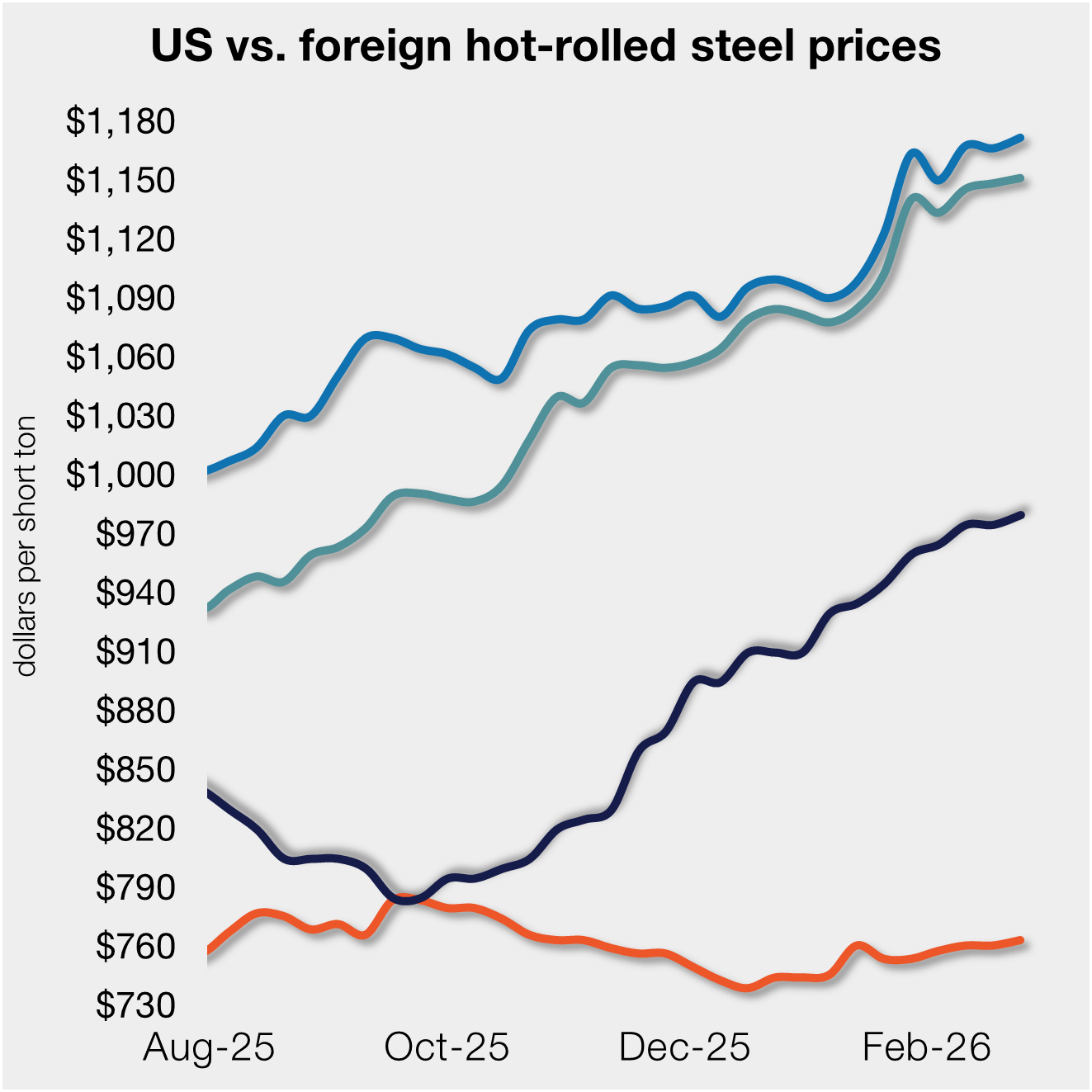Prices

June 26, 2023
Proposed Legislation Modernizes Trade Laws: Brightbill
The Leveling the Playing Field 2.0 Act introduced into Congress earlier this month is aimed at modernizing our trade laws for the 21st century, making sure they are strong and enforceable, according to Washington-based law firm Wiley Rein’s Tim Brightbill.
Brightbill, partner and co-chair of the firm’s International Trade Practice, recently sat down with SMU to discuss this proposed legislation, which so far has had bipartisan support in both the House and Senate.
 More specifically, Brightbill said the legislation attempts to tackle “China and cheating.”
More specifically, Brightbill said the legislation attempts to tackle “China and cheating.”
“The challenges China presents from cheating are overlapping,” Brightbill said. There are similarities in the bill as it “tries to address those multiple overlapping challenges all at once.”
However, the provisions can also be used by Commerce to target other countries as well. Brightbill said it’s very important for “our trade laws to be responsive to how multinational companies and Chinese state-owned companies compete in the real world.”
He also highlighted that it would aid the US steel and steel products industries, among others. “These laws will significantly benefit domestic steel production by addressing unfair trade in steel imports,” he said.
Brightbill noted that the bill is similar to legislation introduced two years ago, with more adjustments than wholesale new concepts, with minor changes from the prior version to address two factors: (1) Consistency with newly proposed Commerce regulations, and (2) Clarifying for the courts what Congress intends, especially with how Commerce can use these provisions of the law.
He explained six types of infractions the bill attempts to address, with the mechanism of action being how Commerce brings forth a trade case, or how US Customs and Border Protection (CBP) enforces the provisions.
• Cross-border subsidies – “So much of what China subsidizes now is outside its own borders,” Brigthbill said, noting that one of the biggest examples of this is China’s Belt and Road Initiative, which it has used in countries around the world.
• Circumvention – Instead of subsidizing, here a country decides to avoid duties by moving a minor portion of manufacturing to a third country, Brightbill said.
• Successive investigations – Brightbill quipped that this is the “whack-a-mole” provision. While an investigation is in progress, China may move its manufacturing to another country.
“That is problematic because trade laws have not moved fast enough,” Brightbill said. He commented that this provision would allow for “accelerated findings or special rules for the Commerce Department and the International Trade Commission.”
• Distortive particular market situations – He said that this would clarify an earlier change to the law in 2015.
“If there’s something that’s going on in the market that distorts it, the Commerce Department can ignore those distorted prices or distorted costs,” Brightbill said.
Whereas the first version was interpreted narrowly by the courts, he emphasized that this version should clarify and confirm the broad intent of the law. For example, he said in the steel industry if a foreign government or state-owned enterprise influences the production of merchandise or inputs, “Congress or Commerce can do something to eliminate that distortion.”
• Countering evasion – Here Brightbill gives a possible example of China making a product, which is then sent through another country such as Malaysia where the paperwork and container are exchanged. He said CBP already had Enforce and Protect Act Investigations, and the new bill would expand the use of those investigations.
• Currency undervaluation – He stressed that it’s not only China, but other countries such as Vietnam as well, that could require action. He said Commerce has had the ability to address this issue, but for 20 years they resisted it. This has changed in the last few years, though, Brightbill said, adding: “This bill would just ensure that Commerce’s current approach is written into the law.”
He noted that the support so far for the legislation has been impressive. “Both in the House and Senate, from Democrats to Republicans, and also in the Commerce Department, all are saying we need to do this.”
By Ethan Bernard, ethan@steelmarketupdate.com






